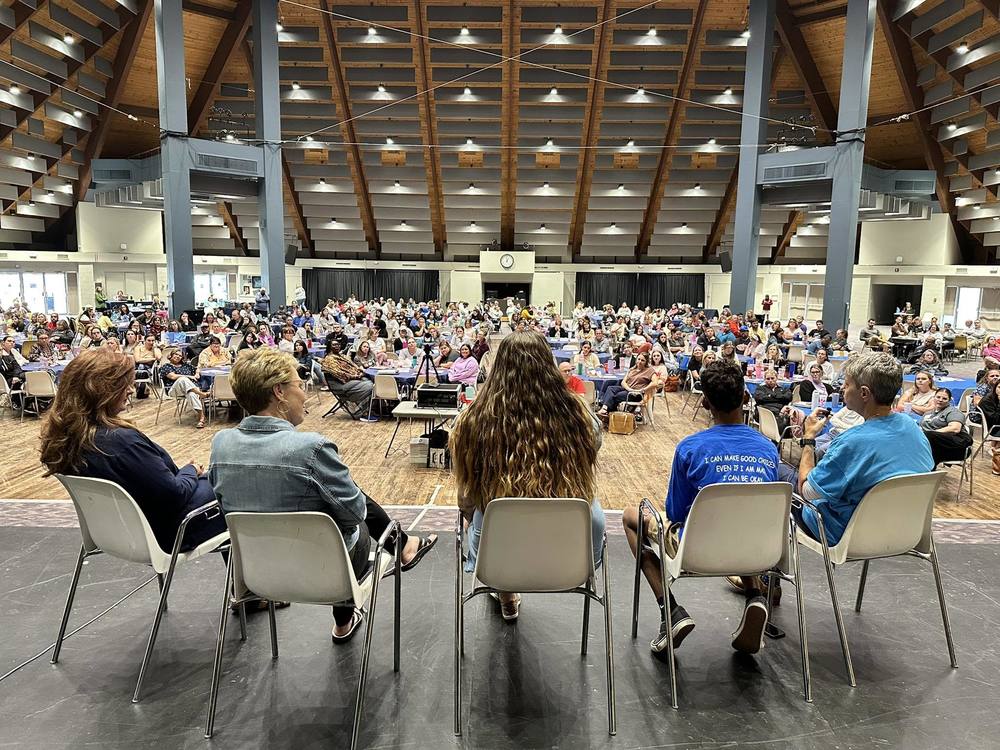Lansing USD469 staff wrapped up a powerful week of learning during the annual BIST (Behavior Intervention Support Team) training held July 28 through August 1. The event brought together more than 500 educators from across the region and was highlighted by a panel that included Lansing USD469 student Luke Robichaux and Lansing Intermediate School Assistant Principal Mechelle Settles.
Lansing USD469 is proud to utilize the BIST model to equip teachers, students, and administrators with tools and strategies to address and respond to challenging behaviors while helping students develop practical life skills. Unlike traditional discipline approaches, BIST focuses on relationships and collaboration. It empowers educators and families to support students in understanding their emotions, building resilience, and navigating life’s inevitable challenges with maturity and self-control.
Principal Martin Alteri of Lansing Intermediate School shared his reflections on the success of BIST implementation at the building level. “Implementing BIST at Lansing Intermediate has been an amazing journey. Seeing our students learn techniques to resolve peer conflict, manage frustration, and improve classroom behavior has been extremely rewarding. Our 4th and 5th graders go through many physical and mental changes during their two years at LIS and our staff are dedicated to setting them up for success during their time here and beyond. We impress upon our students that the skills they learn through BIST will apply to all parts of their lives as they mature and become adults. Luke is an amazing example of how students' behavior can be transformed through coaching, caring, and a mutual desire of all parties (student, parents, staff) to improve. We will continue to fine tune our BIST practices to meet the needs of students and staff and ensure every student has the tools and fortitude to be successful in the future.”
Throughout the training, BIST leaders emphasized three foundational principles that drive meaningful change in schools: developing a united adult mindset to support students, building an “OUR kids” culture where every student is seen and supported by every adult every day, and committing to sustainable transformation over time.
At its core, the BIST model reinforces the belief that emotional growth is just as critical as academic progress. Lansing USD469’s commitment to this work directly aligns with our Strategic Plan’s focus on the Whole Child Approach to Learning. By helping students become emotionally intelligent, resilient, and thoughtful decision-makers, our district is not only shaping better students, we’re shaping strong, successful future adults.
We are incredibly proud of the staff who participated in this training and grateful for the opportunity to highlight our district on such an inspiring stage.

